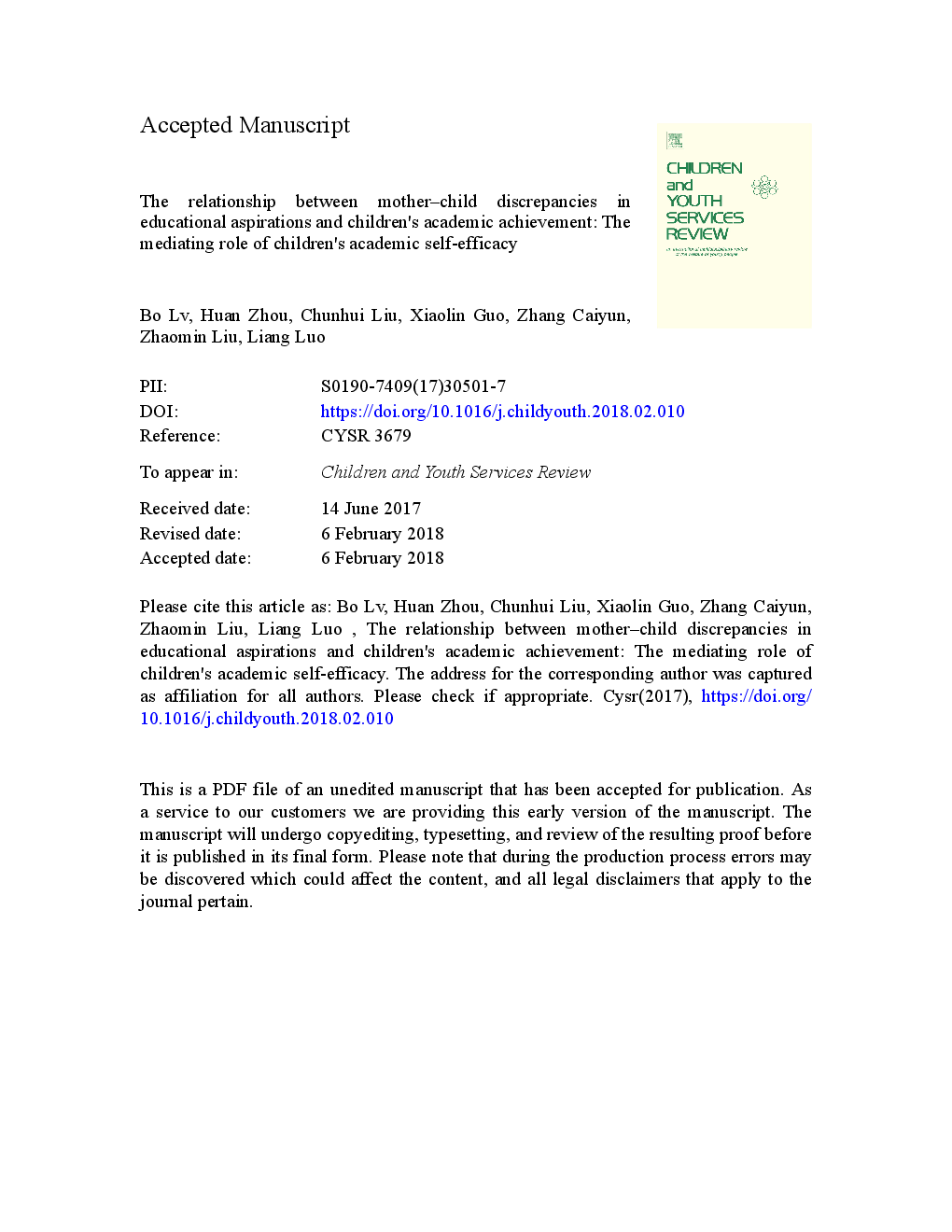ترجمه فارسی عنوان مقاله
رابطه اختلافات مادری در آرمان های تحصیلی و پیشرفت تحصیلی کودکان: نقش میانجی خودکارآمدی تحصیلی کودکان
عنوان انگلیسی
The relationship between motherchild discrepancies in educational aspirations and children's academic achievement: The mediating role of children's academic self-efficacy
| کد مقاله | سال انتشار | تعداد صفحات مقاله انگلیسی |
|---|---|---|
| 112552 | 2018 | 28 صفحه PDF |
منبع

Publisher : Elsevier - Science Direct (الزویر - ساینس دایرکت)
Journal : Children and Youth Services Review, Volume 86, February 2018, Pages 296-301
ترجمه کلمات کلیدی
اختلافات، دستاوردهای علمی، خود کارآمدی، آرزوهای آموزشی، مادر،
کلمات کلیدی انگلیسی
Discrepancies; Academic achievement; Self-efficacy; Educational aspiration; Mother;

